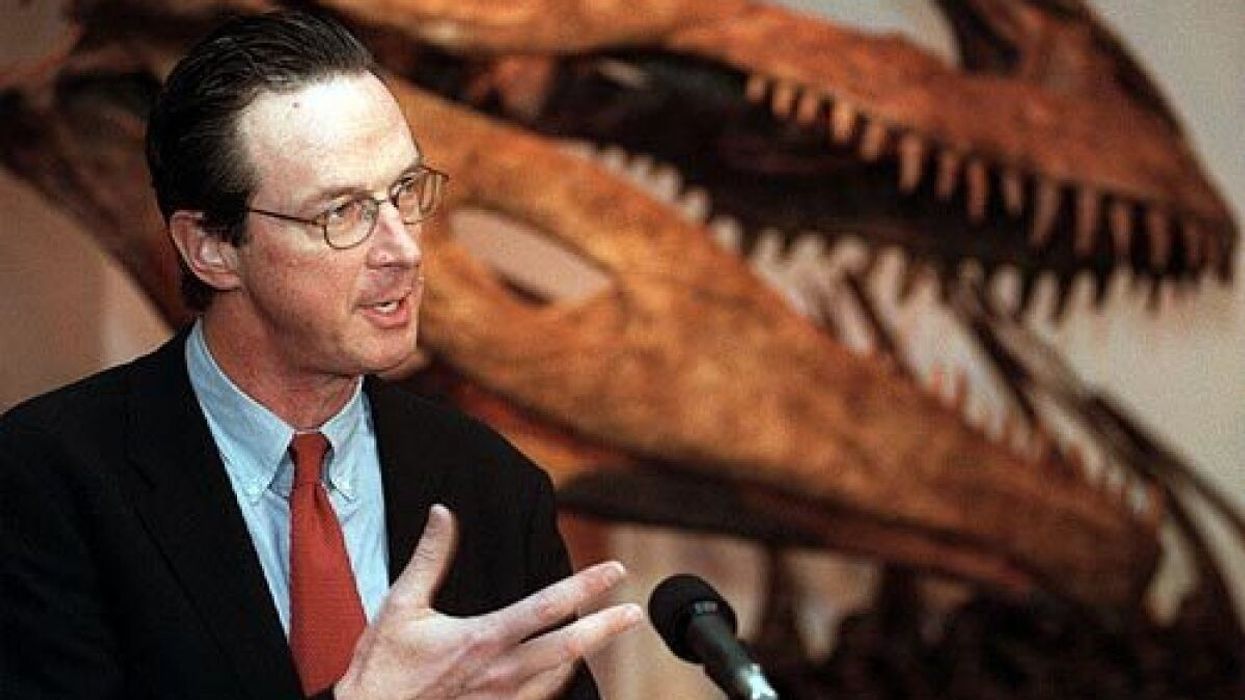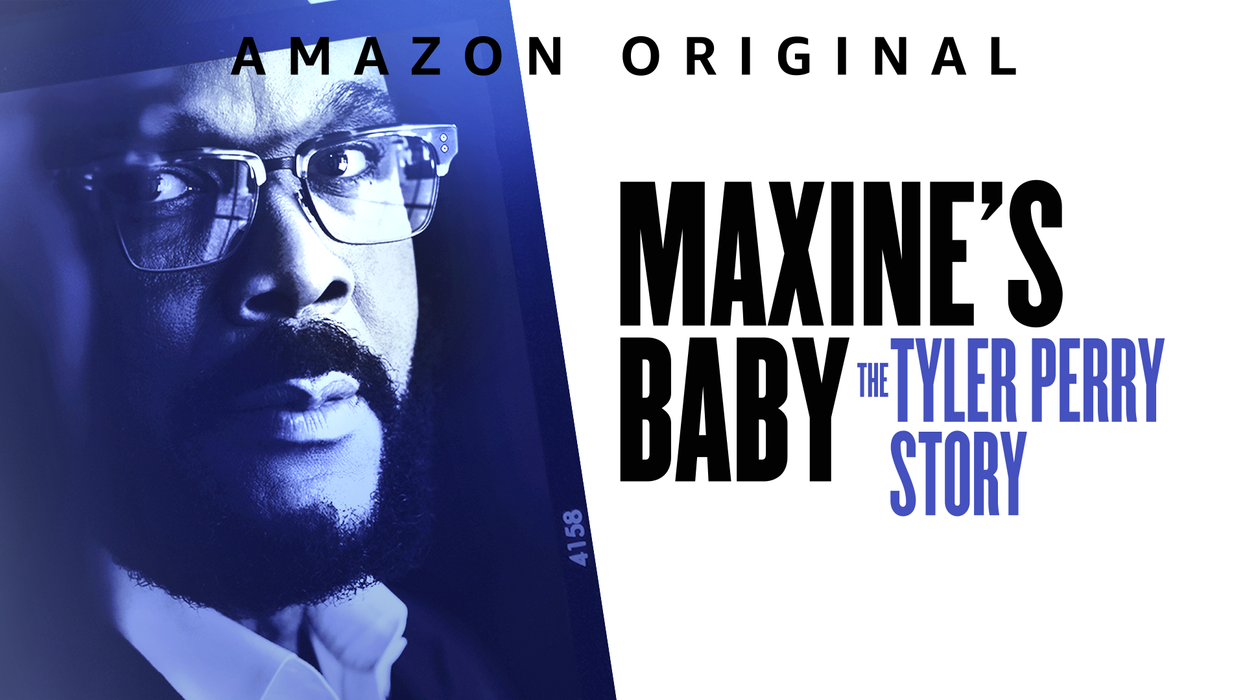We Really Miss Michael Crichton's Pop Culture Dominance
Michael Crichton's ideas once dominated movies, TV, and novels.

When I was a kid, my parents wouldn't let me watch R-rated movies, for obvious reasons. But I was allowed to take any book out of the library I wanted. That loophole led me to one of my favorite authors of all time, Michael Crichton.
If you love science fiction, then you know Crichton. Crichton's name dominated the 80s and 90s. He wrote the best-selling books forThe Andromeda Strain, The Great Train Robbery, Jurassic Park, Congo, Disclosure, and Sphere. These novels sold more than 200 million copies worldwide, and 13 of them were made into major motion pictures. Crichton was also a director and producer, creating Westworld and ER.
Here's a stunning fact from an article on him in Vanity Fair:
In 1995 he achieved a breathtaking pop-cultural moment when he had the nation’s No. 1 best-selling book (The Lost World), the No. 1 movie (Congo), and the No. 1 TV show (ER), a trifecta he repeated in 1996 with Airframe, Twister, and ER. No one has topped that—not Stephen King, not John Grisham, not J. K. Rowling. At the height of his career, Crichton was reportedly earning $100 million a year. His cultural ubiquity was such that a New Yorker cartoon showed a woman in a bookstore asking, “What can you recommend that’s not by Michael Crichton?”
As a writer myself, I have always admired Crichton's dedication to telling accessible science fiction stories. His books and film adaptations always took time to explain things to the audience in ways that never felt like exposition. He was a master at making science entertaining. As a kid, I felt swept away and smart reading him. As an adult, I see the layers and I also admire how prolific he was—the guy was just cranking out ideas and characters. Even the less successful projects had huge ideas behind them and people that were easy to identify and root for at their core.
Katheleen Kennedy, producer of Congo, Jurassic Park, and Twister said of the man, “I always say Michael Crichton [wrote] science fact, not science fiction. He was deeply interested in what was going on with technology and scientific experiments, but he always seemed to find a way to make complex ideas very accessible because he found a way to talk about them through big entertainment.”
When asked about Crichton’s numerous projects, Kennedy said, “He was incredibly driven. I think more of it just came from this insatiable desire to understand these complex ideas and where technology was going, where medicine was going, or science was headed.”
Perhaps what drew me to Crichton most is something I want our readers to recognize. He was a pragmatist who was afraid of his own writing talent.
He went to medical school and became a doctor because he knew there weren't many famous writers in the world who could make a living. His first novels were written under pseudonyms. It was not for years that he had the courage to publish under his own name. And then, when his books sold more, to even leave his day job.
It's hard to believe there was a time before his name was ubiquitous with science fiction. But there was. If he didn't find the courage to tell stories, we would have missed out on some of the best movies, TV shows, and novels. The world would be a truly different place.
Crichton's work felt like it saw the future. And often, the people cast in his work became the future of Hollywood. It's safe to say Crichton's ideas helped shape modern cinema as we know it. Each one of his books was a powerful piece of intellectual property that attracted the top filmmakers in the world. Many turned into blockbuster movies and franchises.
There was some controversy later in his life, where he questioned global warming, but I'm not sure that tarnishes his legacy. I wish he lived longer to see all the science we have now. I think it would have promoted more of his ideas, resulted in even better novels, and maybe given him a course correction on the climate.
We lost Crichton too early, at just 66 years of age in 2008. His absence over the last years has been seen in the smaller science fiction movies and shows we've gotten. It's like we're missing his popular books to really put huge titles out there. While there have been a handful of larger films, there really was a glut of them in the 80s and 90s, taking chances and telling stories that felt like they had chances to break into blockbuster status.
Steven Spielberg, a frequent collaborator with Crichton, said, “He left a huge legacy. Michael had a special imagination different from most other writers’. And I think that he’s got a lot of unhatched eggs, you know, and rather than let them sit around and fossilize like amber, we’d like to get those stories out to the world while they’re still fresh.”
I miss the time when Crichton's ideas reigned supreme. But I am excited for the generations that grew up reading and watching his material. Diverse voices have a chance to shine today thanks to the tracks he laid decades prior.
Let me know your thoughts in the comments.











